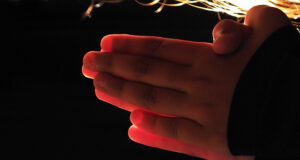Editor’s note: Suzanne Eitzen is the Explore Director and FDC Teacher at the elementary.
Home. It’s such a simple and yet complex word. Its meaning is as individualized as we are and varies greatly depending on our childhood experiences, our familial relationships, and our personalities. This year, I’m delving into what Home means with all of the elementary classrooms during our weekly library time. In the first week of school, I asked each class what the word means to them. Here are some of their own responses:
It’s where you don’t get wet when it’s raining (1st). It’s where you feel like you belong and where you can be yourself (5th). Home is the place where people are valuable to you (4th), and where you’re safe and loved (2nd). You can trust the people there (5th). It’s not necessarily where you live, but where you feel appreciated; where someone is looking out for you (6th). Home is full of your memories (3rd) and where your family is (1st). It is a safe place after a bad day (5th), and where you can snuggle and play games with your family (2nd). It’s a place to show others what it’s like to be you (6th).
More than any others, the words that were repeated throughout the grades describe home as “comfortable, safe, a shelter; a place of belonging, love, and family.” These responses reflect that our students are experiencing Home in good and healthy ways. I’m grateful for the parents, grandparents, and loving caregivers who welcome our students home each afternoon.
The theme of Home was inspired by some reading we are doing together as a faculty this year. David L. Smith, in his book Everyday Christian Teaching (2025), states, “Our way of teaching creates a kind of temporary home with specific contours and rhythms, in which we invite students to dwell and grow” (p.6). On the next page, he continues, “…how we teach shapes the values and rhythms of the formative pedagogical home into which we invite students. We are responsible for the stories we tell, the patterns we create, the homes we make” (p. 7).
At FRCS, we are committed to responding to these exhortations as we create classrooms that are safe, comfortable, and welcoming for all of our students. As educators, we seek to establish rhythms that foster a sense of belonging and shelter. We work hard to nurture our students into a familial love for one another. We invite our students into safe places of healthy growth, curiosity, and creativity. These temporary homes that we carve out each school year allow our students to thrive and learn and grow. Their more permanent homes, with each of you, allow them to flourish and become all that God created them to be.
And yet, we know that we don’t always do it well. We can’t always protect our loved ones from outside forces. There is pain and hurt and sin in our world, in our homes, and in our school. In those moments when we’re experiencing something other than safe and comfortable, however, we can remember that there is so much more. This is all just temporary. One of the most poignant responses to my question, “What does Home mean to you?” came from a 2nd grader whose family has suffered unimaginable loss. “Home is heaven,” he said, “heaven is our real home.” What a great reminder that is; what a comfort and what a source of encouragement for living in today. As we carve out temporary homes on this earth and make them as good as we can, may we keep our eyes focused on our heavenly home. That is where we will finally be able to experience perfect safety, love, and belonging for all of eternity.









One Response
So wonderfully put! Your last point from the second grade response reminded me what is engraved on my grandparents shared headstone, “Heaven is our Home”. Such a great thing to put both the good and bad of this broken world in perspective.